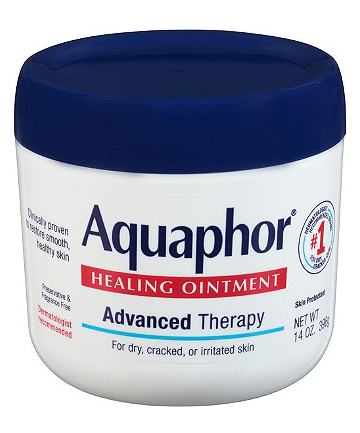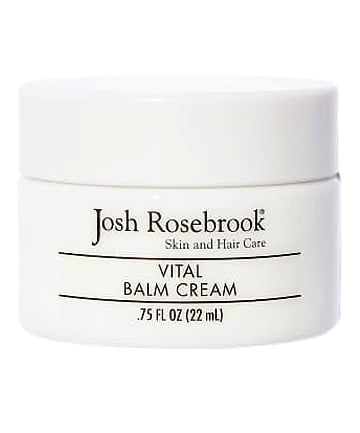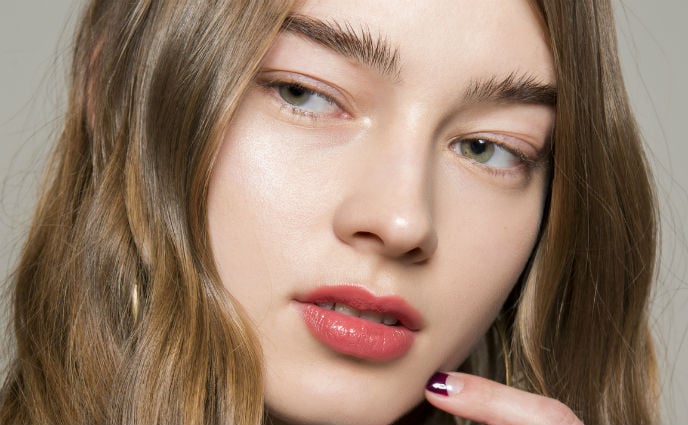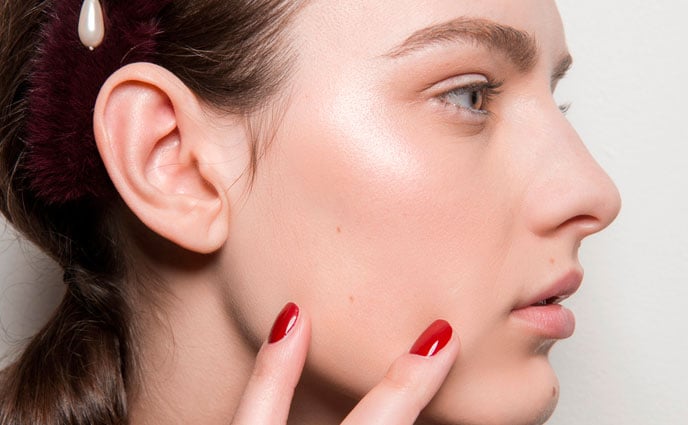It really all comes down to personal choice, according to the experts. There are different factors to consider, including lifestyle choices, skin type, usage and desired results. "Mineral oil is safe, non-irritating, noncomedogenic and occlusive. It is safe to use, all over," De Sousa says. "However, it is just that: occlusive, it doesn't nourish the skin, it is just sitting on the top of the skin. This is why some prefer other oils that have additional skin benefits." Personally, she would choose not to use mineral oil.
Kraffert agrees: "While there is nothing 'wrong' or 'dangerous' with the use of pure mineral oil, there are myriad better options." Many products are formulated without mineral oil so brands can avoid its controversial reputation and be more appealing. "The dysphoria of seeing mineral oil on a cosmetic product ingredient list is common but the presence of mineral oil — in and of itself — is not grounds for real concern regarding function, safety or quality of the product in which it appears," he says. Kraffert suggests judging products that contain mineral oil as just one of their ingredients on their own merits.
Grossman finds that patients with dry skin like products with mineral oil as the products tend to be heavier. Mineral oil-based products are good options after laser procedures as they carry a low risk of irritant or allergic reaction. "We use them on a regular basis to aid in healing of the skin," she says. Additionally, frequent hand washers or those who suffer from eczema find mineral oil-rich Vaseline and Aquaphor to be great options.
Foley is among those who do not recommend using mineral oil and includes it on Follain's restricted ingredients list. Hewett is also against regular use. "I would only use pharmaceutical grade mineral oil if you have to use it and I would use it sparingly," she says. "A good reason would be a cut or abrasion that you must protect." Instead, Hewett would look for something "less suffocating" that has more nourishing properties.
Kraffert has a food analogy that can help put the ingredient into perspective: "Mineral oil is akin to iceberg lettuce. Some people stay away from iceberg lettuce out of nutritional principle. Most people, however, enjoy it in salads mixed with other ingredients. Nevertheless, few people enjoy routinely consuming iceberg lettuce 'pure' as a meal or dish. And that's the way it is, for the most part, with mineral oil."
Image via Ulta
Kraffert agrees: "While there is nothing 'wrong' or 'dangerous' with the use of pure mineral oil, there are myriad better options." Many products are formulated without mineral oil so brands can avoid its controversial reputation and be more appealing. "The dysphoria of seeing mineral oil on a cosmetic product ingredient list is common but the presence of mineral oil — in and of itself — is not grounds for real concern regarding function, safety or quality of the product in which it appears," he says. Kraffert suggests judging products that contain mineral oil as just one of their ingredients on their own merits.
Grossman finds that patients with dry skin like products with mineral oil as the products tend to be heavier. Mineral oil-based products are good options after laser procedures as they carry a low risk of irritant or allergic reaction. "We use them on a regular basis to aid in healing of the skin," she says. Additionally, frequent hand washers or those who suffer from eczema find mineral oil-rich Vaseline and Aquaphor to be great options.
Foley is among those who do not recommend using mineral oil and includes it on Follain's restricted ingredients list. Hewett is also against regular use. "I would only use pharmaceutical grade mineral oil if you have to use it and I would use it sparingly," she says. "A good reason would be a cut or abrasion that you must protect." Instead, Hewett would look for something "less suffocating" that has more nourishing properties.
Kraffert has a food analogy that can help put the ingredient into perspective: "Mineral oil is akin to iceberg lettuce. Some people stay away from iceberg lettuce out of nutritional principle. Most people, however, enjoy it in salads mixed with other ingredients. Nevertheless, few people enjoy routinely consuming iceberg lettuce 'pure' as a meal or dish. And that's the way it is, for the most part, with mineral oil."
Image via Ulta
If you aren't into the idea of using mineral oil, you'll be happy to know that there are plenty of other options. "There are many oils out there that are good occlusive agents, but also carry other skin care benefits," Grossman says. Examples include coconut oil, shea butter and olive oil.
Hewett says to specifically look for oils with larger molecules that don't penetrate the skin easily to replicate the effect of mineral oil. They include castor oil, avocado oil and grapeseed oil. Beeswax is another good alternative as it creates a barrier on skin.
Some excellent mineral oil alternatives include Josh Rosebrook Vital Balm Cream, $45, Josie Maran Whipped Argan Oil Body Butter, $35, and Lush Ultrabalm, $16.95.
Image via Follain
Hewett says to specifically look for oils with larger molecules that don't penetrate the skin easily to replicate the effect of mineral oil. They include castor oil, avocado oil and grapeseed oil. Beeswax is another good alternative as it creates a barrier on skin.
Some excellent mineral oil alternatives include Josh Rosebrook Vital Balm Cream, $45, Josie Maran Whipped Argan Oil Body Butter, $35, and Lush Ultrabalm, $16.95.
Image via Follain






